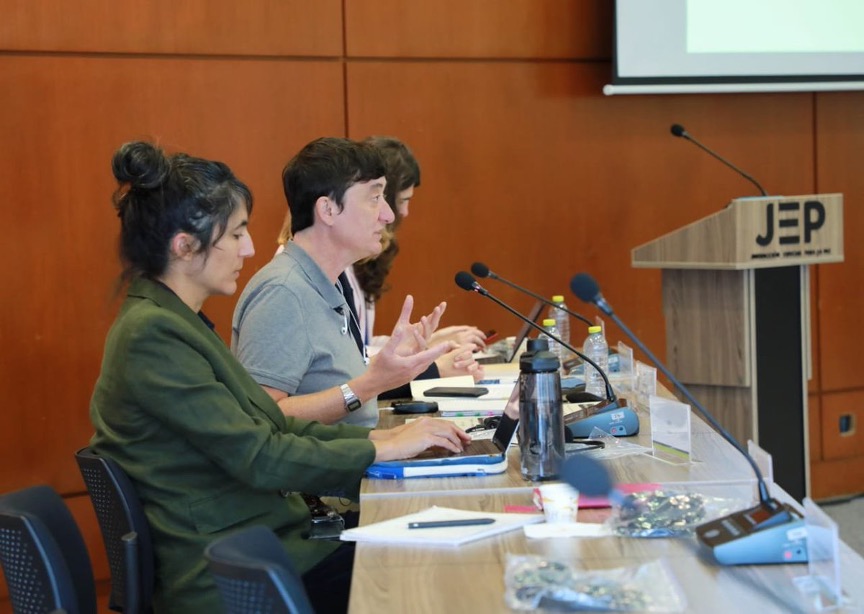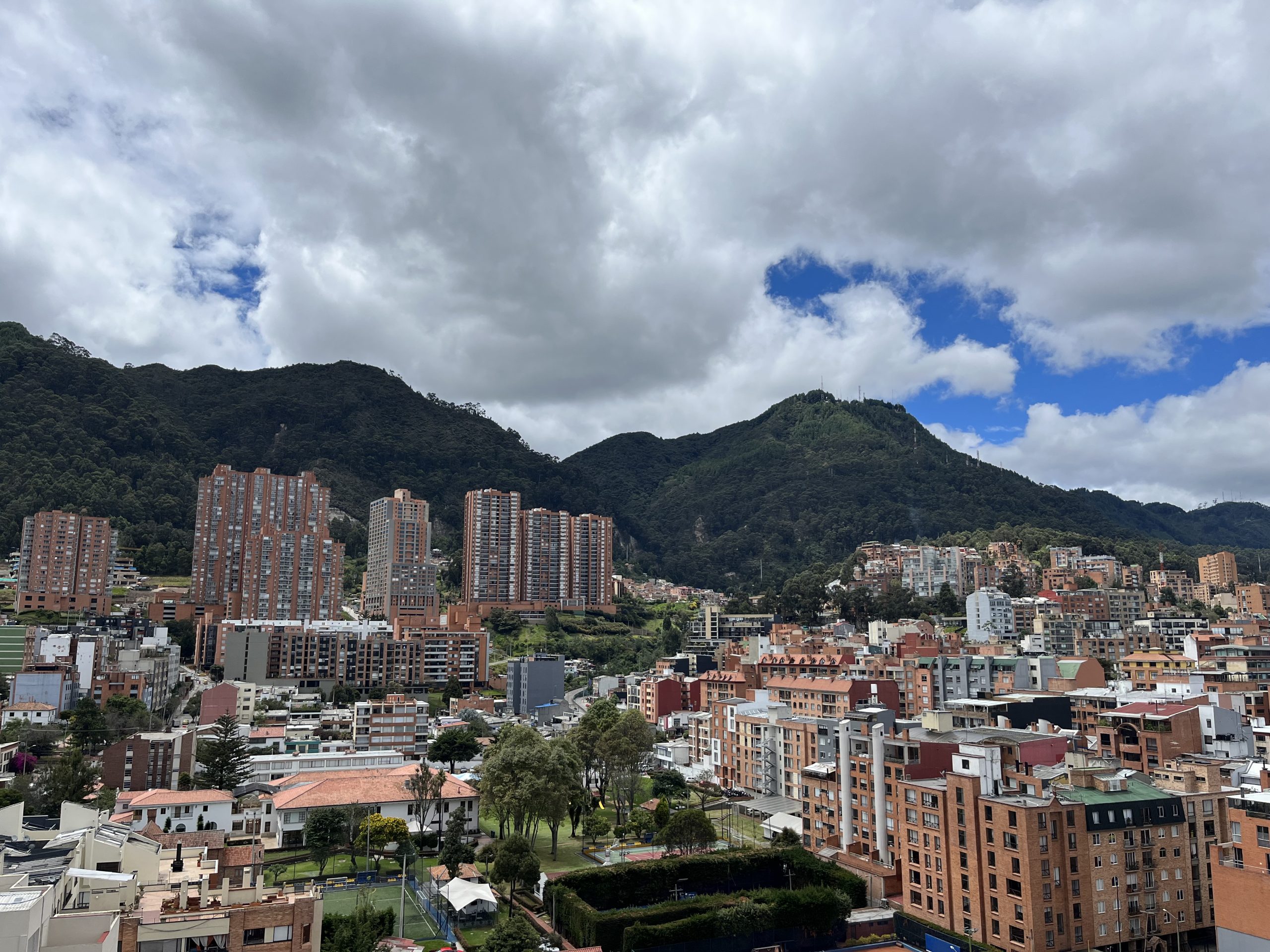The Institute on Gender, Law, and Transformative Peace, MADRE, International Criminal Court, and Universidad de los Andes co-hosted an August 2023 multi-day workshop for 160 Colombian advocates and lawyers for peace, gender justice, and human rights.
BY MOLLY BANGS, PROGRAM OFFICER
After five decades of conflict, the Colombian government and the Revolutionary Armed Forces of Colombia (Fuerzas Armadas Revolucionarias de Colombia, or FARC) signed the country’s historic peace agreement in 2016. The peace accords created the Special Jurisdiction for Peace (Jurisdicción para la Paz de Colombia, or JEP), a transitional justice mechanism to seek justice for victims, offering truth, reconciliation, and reparations, contributing to lasting peace. The JEP works in conjunction with two other mechanisms created by the peace accords, the Commission for the Clarification of the Truth, Coexistence, and No-Repetition, as well as the Special Unit for the Search of Disappeared Persons during the Armed Conflict.
For nearly seven years now, Colombian legal professionals and advocates for peace, gender justice, and human rights have organized through these mechanisms. From 14-18 August 2023, the Institute on Gender, Law, and Transformative Peace (the Institute) brought together 160 of these Colombian lawyers and advocates for a multi-day workshop on gender persecution in Bogotá, Colombia. The workshop was hosted in partnership with MADRE, Universidad de los Andes, and the International Criminal Court (ICC). Participants represented gender and racial justice groups, as well as Afro-Colombian and Indigenous populations, LGBTQI+ people, and survivors of sexual violence and reproductive control.
The event consisted of a transitional justice advocates workshop, an ICC training at the Jurisdicción para la Paz de Colombia (JEP), and a civil society roundtable. Institute Co-Chair and Professor Lisa Davis, who is the Special Advisor for Gender Persecution to the ICC, and staff members from the ICC Office of the Prosecutor, led the legal trainings. These trainings, building on the new Policy on the Crime of Gender Persecution, focused on how Colombian activists can use gender persecution as a legal tool at the JEP to address the needs of their movements.

Professor Lisa Davis presenting at the Special Jurisdiction for Peace (Jurisdicción para la Paz de Colombia, or JEP) in Bogotá, Colombia in August 2023.
Photo credit: JEP
“This is how we break the cycles of discrimination. This is how we disrupt the normalization of violence — by using law to show when it’s unequal treatment that may amount to gender and ethnic persecution.” Professor Davis remarked.
Professor Davis and her ICC colleagues discussed with the workshop attendees the six elements of gender persecution as related to the Colombia case: Element 1 – Severe deprivation of fundamental right(s); Element 2 – Unequal treatment against a targeted group; Element 3 – Discriminatory intent based on gender; Element 4 – In connection to a crime under international human rights law; Element 5 – Committed as a widespread or systematic attack; Element 6 – Perpetrator knew it was a widespread or systematic attack. These elements of gender persecution can be used as a bridge between human rights law and international criminal law.
The group discussions honed in on intersectionality and how gender persecution can be used as a legal tool to tell a story, and build a case of intersecting forms of discrimination and violence, on the basis of not just gender, but also race, ethnicity, and sexual orientation. Of the aforementioned elements, Professor Davis pointed to the widespread and systemic nature of crimes, explaining that such patterns can be obvious, like systematic racism or homophobia. It is these patterns that connect violence and discrimination on the basis of gender against the Black or Indigenous populations. Participants spoke to the importance of gender persecution as an intersectional tool with regard to “double” or even “triple” discrimination, and how they have brought cases before the JEP concerning, for example, displaced Afro-Colombian and Indigenous women who also identify as part of the LBTQI+ community, and were targeted by FARC.

View from the JEP in Bogotá, Colombia.
Photo credit: Molly Bangs
JM Kirby, Advocacy Director at MADRE, led the roundtable discussion components of the workshops. Lauren Dasse, Senior Director of Advocacy and Policy at MADRE, as well as Sarah Bruchmann, Fellowship Director, and Molly Bangs, Program Officer, both of the Institute, staffed the workshop. The roundtable discussions provided the space for civil society organizations representing different groups to hear from one another about their distinct needs. Among the distinct needs raised were the fundamental necessity of having better technical counsel from both Afro-Colombian and Indigenous groups represented in the cases before the JEP, as well culturally appropriate ways through which to both inform and then carry legal frameworks into the territories and rural areas. The event provided space and connections, and the basis for opportunities for further intersectional collaboration.
